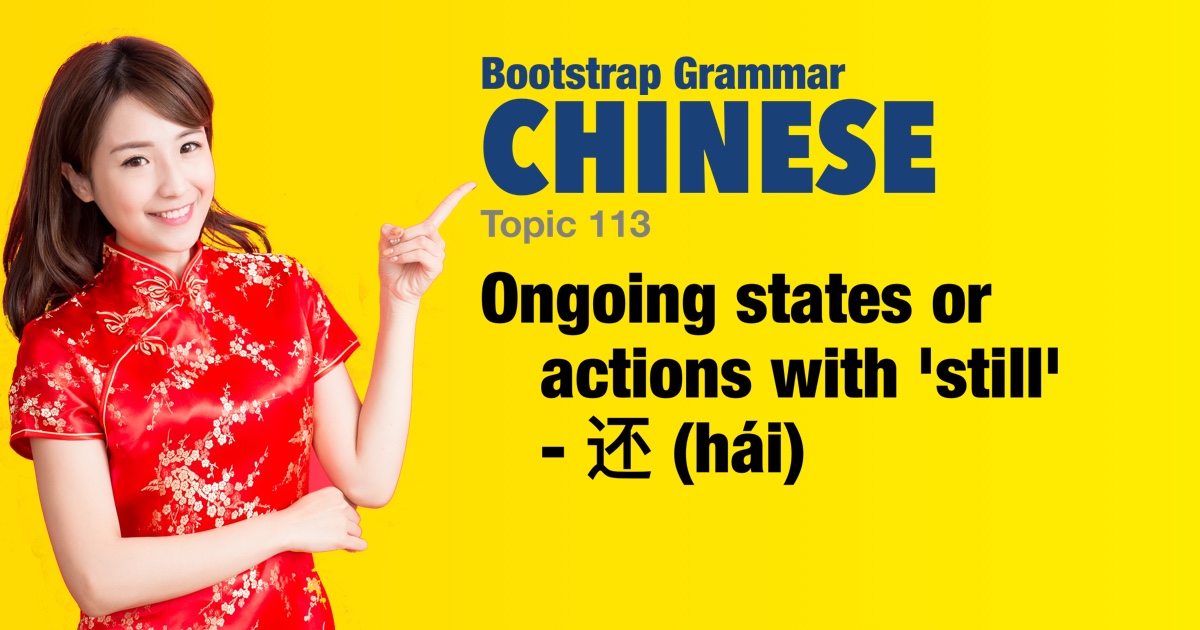Chinese grammar - Ongoing states or actions with 'still' - 还 (hái) |
|||
|
|||
To strongly emphasize that an action or state is 'ongoing', we can use the word 还 (hái). 还 (hái) is often used with an action verb in the present continuous tense (with 在). It can also be used with adjectives to express an ongoing state. Used with 不 (bù), 还不 means 'still not'. |
| Examples: | |
|
我还在工作。
wǒ hái zài gōngzuò. I am still working. |
|
|
他还在学习。
tā hái zài xuéxí. He is still studying. |
|
|
她还在吃饭。
tā hái zài chīfàn. She is still eating. |
|
|
我们还在等你。
wǒmen hái zài děng nǐ. We are still waiting for you. |
|
|
你还在听音乐。
nǐ hái zài tīng yīnyuè. You are still listening to music. |
|
|
我们还在讨论问题。
wǒmen hái zài tǎolùn wèntí. We are still discussing the issue. |
|
|
饭还是热的。
fàn hái shì rè de. The rice is still warm. |
|
|
天气还冷。
tiānqì hái lěng. The weather is still cold. |
|
|
你还饿吗?
nǐ hái è ma? Are you still hungry? |
|
|
我还饿。
wǒ hái è. I am still hungry. |
|
|
我还不饿。
wǒ hái bú è. I am still not hungry. |
|
|
她还生气。
tā hái shēngqì. She is still angry. |
|
|
你还在工作吗?
nǐ hái zài gōngzuò ma? Are you still working? |
|
|
他还在学习吗?
tā hái zài xuéxí ma? Is he still studying? |
|
|
我们还不知道。
wǒmen hái bù zhīdào. We still don't know. |
|
|
你还不困吗?
nǐ hái bú kùn ma? Are you still not sleepy? |
|
|
她还不高兴吗?
tā hái bù gāoxìng ma? Is she still not happy?
|
|
|
谁还在这里?
shéi hái zài zhèlǐ? Who is still here? |
|
 |
|



